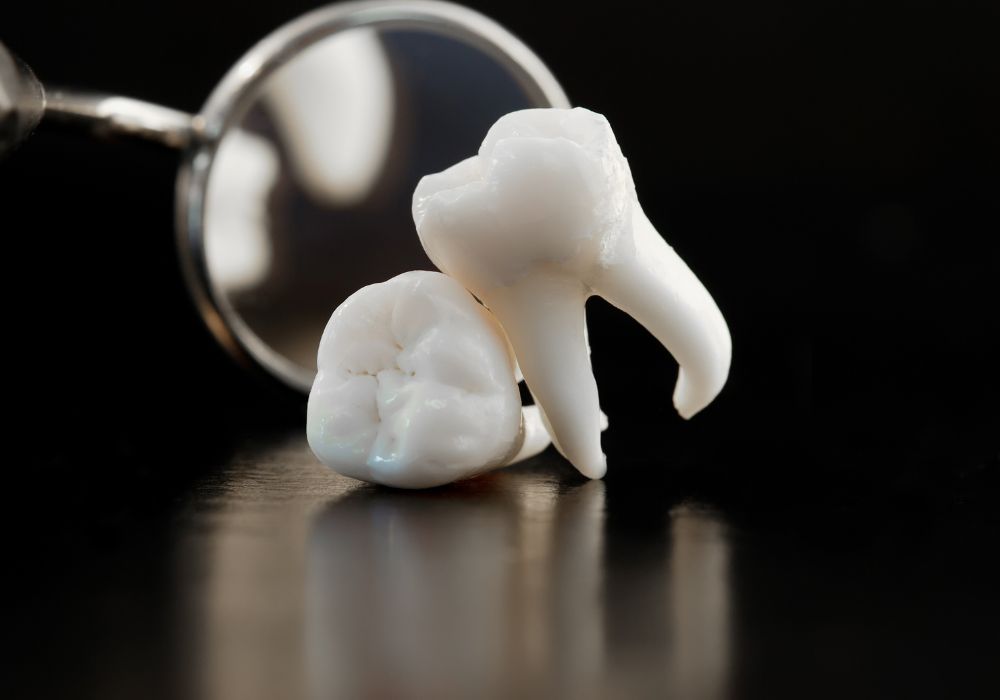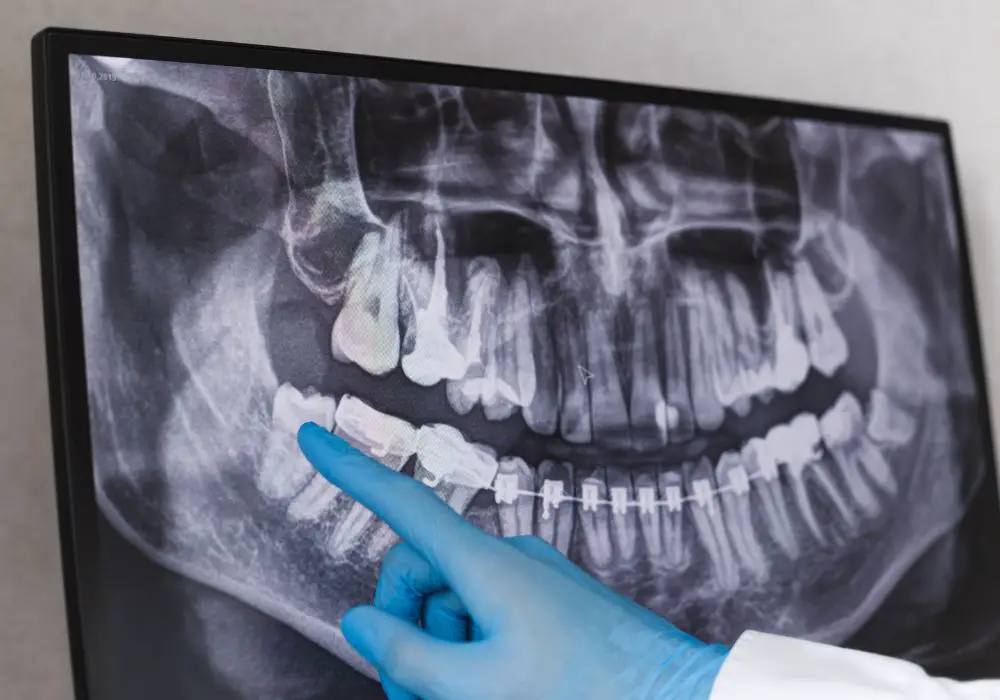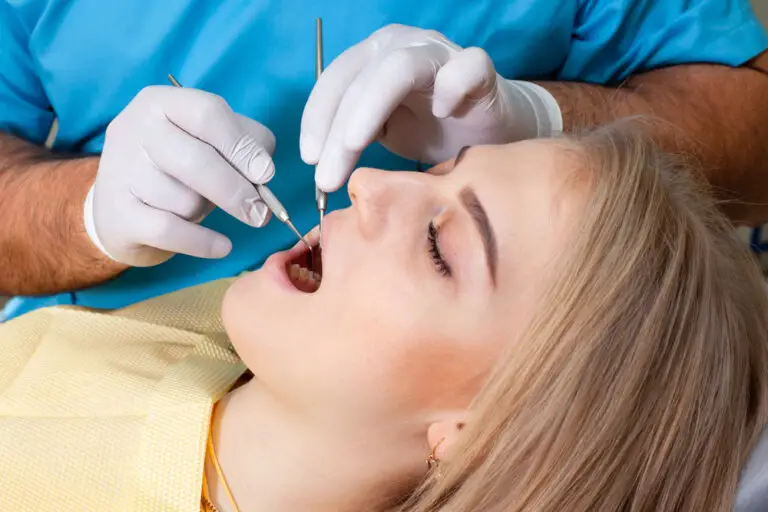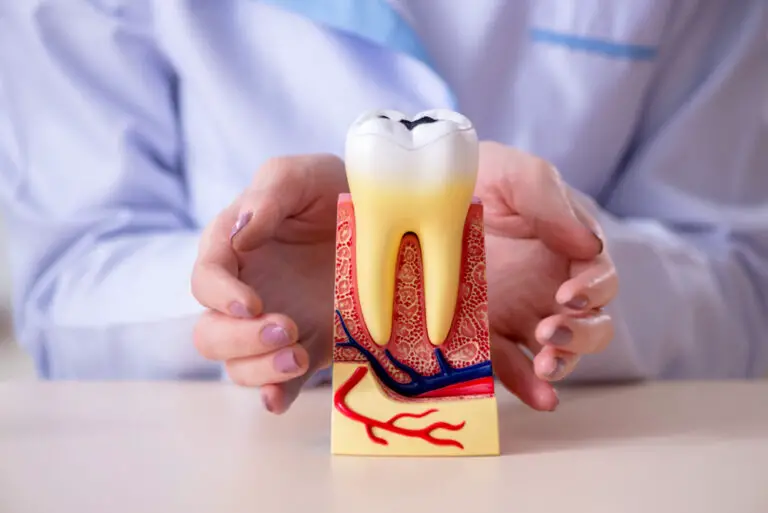Wisdom teeth, also known as third molars, are the last teeth to erupt in the back of the mouth. Most people get their wisdom teeth between the late teens and early 20s. However, it is possible for wisdom teeth to emerge later in life, even into the 30s, 40s, or beyond. This article will explore the reasons wisdom teeth may erupt later than normal, signs to watch for, and considerations around getting wisdom teeth extracted at different ages.
Typical wisdom tooth development timeline

Wisdom teeth are the final set of molars that erupt in adulthood. They get their name from the fact that they come in as adult wisdom is developing. The typical order of tooth eruption is:
- Baby teeth (age 6 months to 3 years)
- Permanent first molars (around age 6)
- Permanent central incisors (around age 7)
- Permanent lateral incisors (around age 8)
- Permanent canines (around age 13)
- Permanent premolars (around ages 10-12)
- Permanent second molars (around age 12)
- Permanent third molars – wisdom teeth (around ages 17-21)
This third set of molars emerges last to “complete” the full adult set of 32 permanent teeth. But when exactly do wisdom teeth tend to come in?
- Most people get their wisdom teeth between ages 17 and 21.
- Some may erupt them as early as age 15 or 16.
- Others don’t get them until their mid 20s.
- And some people don’t develop wisdom teeth at all. Congenital absence of wisdom teeth affects about 25% of people.
Why can wisdom teeth emerge later in life?

While most wisdom teeth come in during the late teenage years, their eruption timeline is highly variable for several reasons:
Genetic factors
Our genes play a major role in dental development patterns. Some people inherit tendencies for early or delayed wisdom tooth formation. Late development of wisdom teeth often runs in families.
Jaw size and obstruction
If the jawbones are small or crowded, wisdom teeth may have no room to erupt and emerge later. Partially impacted teeth also take longer to fully emerge.
Orthodontic treatment
Braces or palatal expansion during childhood can create space for wisdom teeth to erupt later.
Acquired dental problems
Tooth loss or gum disease later in life opens up space that enables delayed wisdom tooth eruption.
Chronic disease
Some medical conditions and poor nutrition can impair tooth formation, resulting in late development.
Horizontal impaction
Wisdom teeth angled sideways often remain buried until resorption of the jawbone enables eruption. This may not occur until the 30s or later.
Signs of wisdom teeth coming in later in life
Some symptoms that may indicate wisdom teeth are emerging later than normal in adulthood include:
- Pain, swelling, or inflammation in the back of the mouth
- Difficulty opening the jaw fully
- Development of a pericoronal infection or abscess
- Headaches or jaw stiffness
- Crowding of existing back teeth
- Teeth slowly erupting through the gums
- Food impaction between existing molars and new teeth
- Bad odor or taste from decomposing food debris
If you notice any of these signs of wisdom tooth development past your early 20s, see your dentist for an x-ray evaluation. Impacted or partially erupted teeth may require extraction before worsening symptoms arise.
Is there an age when it is too late to get wisdom teeth?

Technically, as long as a person still has their natural teeth and jawbone present, they can potentially develop new wisdom teeth later in life. However, the chances decrease significantly past early adulthood.
Some factors make wisdom tooth emergence highly unlikely after a certain age:
- Completion of jaw growth – The jaw normally ossifies in the late teens, limiting space.
- Loss of back teeth – This allows remaining front teeth to drift back.
- Receding gums – Reduced gum tissue decreases available room.
- Developmental disorders – Cleft palate and other oral conditions alter anatomy.
- Existing crowding and malocclusion – No room left for more teeth.
While erratic cases of wisdom teeth emerging in the 50s, 60s, or even 70s have been reported, it is exceedingly rare. By middle age, most individuals know whether they have had wisdom teeth or not.
Ideal ages for wisdom tooth extraction
Due to risks of impaction, decay, and other problems, dentists often recommend wisdom tooth removal even if no symptoms are present. Here are some general guidelines for extraction based on age:
- Teens to early 20s – Preventive removal of fully impacted asymptomatic wisdom teeth.
- Mid 20s to 30s – Removal of partially erupted or problematic wisdom teeth.
- 30s to 50s – Proactive removal due to increased gum disease risk.
- After 50 – Mostly emergency extractions for advanced infections.
Of course, exceptions can be made based on individual clinical and radiographic findings. For example, some teens or 20-year-olds may keep asymptomatic wisdom teeth if space allows. And some older adults may need preventive removal before major dental procedures. Regular dental examinations help determine appropriate timing.
Questions and answers about wisdom teeth and age
Q: Is it weird or bad to get your wisdom teeth in your 30s?
A: Not at all – delayed wisdom tooth eruption into the 30s can be perfectly normal and does not indicate any problem. The variation in development timing is wide.
Q: Can wisdom teeth really erupt suddenly overnight?
A: Not likely. While wisdom teeth may seem to appear rapidly, they actually form slowly under the gums over months to years. Sudden emergence probably just represents a final stage of development.
Q: What if I choose not to extract my wisdom teeth at age 50?
A: If wisdom teeth are present at age 50 but asymptomatic, monitoring them may be a reasonable option. However, increased periodontal disease risk around wisdom teeth in older adults often leads dentists to recommend prophylactic removal.
Q: How will I know if my wisdom teeth are impacted?
A: Your dentist can take x-rays to visualize wisdom teeth below the gums and determine if they are fully or partially impacted. Symptoms like swelling and jaw pain may also indicate impaction. But many impacted wisdom teeth cause no obvious symptoms initially.
Q: Can wisdom teeth still erupt if I’m over 60 years old?
A: It is highly uncommon but not impossible. As long as some viable jawbone remains, wisdom teeth that formed years prior may still slowly emerge if conditions allow. But most people know whether they have had wisdom teeth long before reaching advanced age.
Conclusion
In summary, wisdom teeth development and ideal extraction timing varies substantially between individuals. While most people get their wisdom teeth between ages 17 and 21, eruption into the 30s or later is not abnormal. Several factors like genetics, crowding, and gum disease influence when wisdom teeth emerge. Dentists can help determine appropriate monitoring or extraction based on each patient’s unique case. With regular dental checkups, wisdom tooth issues that arise later in adulthood can be effectively managed.






